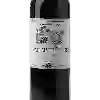Winery Stéphane DuperrayDomaine D'Iconium Beaujolais Cuvée Tradition Les Pierres Dorées
This wine generally goes well with pork, poultry or veal.
Food and wine pairings with Domaine D'Iconium Beaujolais Cuvée Tradition Les Pierres Dorées
Pairings that work perfectly with Domaine D'Iconium Beaujolais Cuvée Tradition Les Pierres Dorées
Original food and wine pairings with Domaine D'Iconium Beaujolais Cuvée Tradition Les Pierres Dorées
The Domaine D'Iconium Beaujolais Cuvée Tradition Les Pierres Dorées of Winery Stéphane Duperray matches generally quite well with dishes of pasta, veal or pork such as recipes of chinese noodles with shrimp, oriental stuffed vegetables or spaghetti squash with cream and bacon.
Details and technical informations about Winery Stéphane Duperray's Domaine D'Iconium Beaujolais Cuvée Tradition Les Pierres Dorées.
Discover the grape variety: Noual
This is an ancient grape variety from the southwest that used to be found mainly in the Lot (west of the Cahors vineyard) and Tarn-et-Garonne departments. It is now little present in the vineyard and is therefore in the process of disappearing, although it is listed in the Official Catalogue of Wine Grape Varieties, list A1.
Informations about the Winery Stéphane Duperray
The Winery Stéphane Duperray is one of of the world's greatest estates. It offers 3 wines for sale in the of Beaujolais to come and discover on site or to buy online.
The wine region of Beaujolais
Beaujolais is an important wine region in eastern France, famous for its vibrant, Fruity red wines made from Gamay. It is located immediately South of Burgundy, of which it is sometimes considered a Part, although it is in the administrative region of Rhône. The extensive plantings of Gamay in this region make Beaujolais one of the few regions in the world that is so concentrated on a single Grape variety. Pinot Noir is used in small quantities in red and rosé wines, but in the name of regional identity, it is being phased out and will only be allowed until the 2015 harvest.
The word of the wine: Film maceration
A technique that consists of leaving the grapes to macerate in the open air at a low temperature before fermentation, thus enhancing the aromatic expression of the wine.










